- 4 maja 2022
How does marijuana affect the heart?
- 30 kwietnia 2022
CBD oil dosage - what are safe dosages?
- 28 kwietnia 2022
Marijuana - a natural antibiotic
CBD for cancer: can cannabidiol help people with cancer?
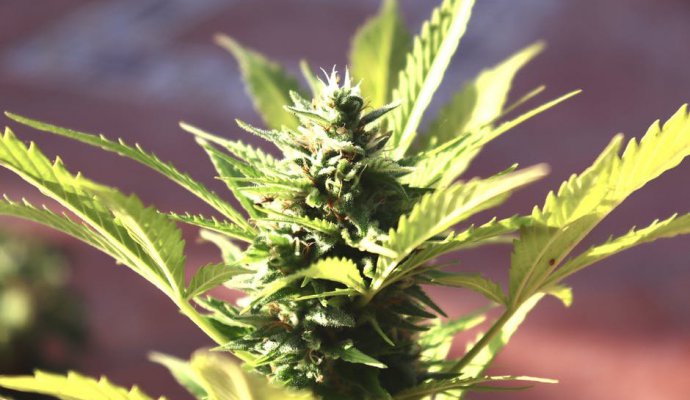
Cannabidiol (CBD) is one of many cannabinoids that can be found in cannabis and fiber hemp. CBD may help people with cancer manage some of the symptoms of the disease, as well as the side effects of treatment. Scientists are also studying how CBD can help treat cancer, but more research is needed before any conclusions can be drawn.
Dried CBD, compared to marijuana, does not have enough tetrahydrocannabinol (THC) for the consumer to feel the psychoactive effects. CBD itself has no psychoactive properties, but CBD products such as CBD hemp flowers and CBD oils may contain trace amounts of THC (Up to 0.2% in Poland). Let's take a closer look at how CBD can help people with cancer.
CBD in cancer treatment
There is solid evidence that cannabinoids can reduce cancer growth in animal studies. CBD may also increase the absorption or potency of certain drugs used to treat cancer.
Here are some promising studies:
- A2019 study on pancreatic cancer found that cannabinoids can slow tumor growth, reduce tumor spread, and induce cancer cell death (apoptosis). The authors of the study wrote that there is a lack of research on the effectiveness of different formulations, dosage and how CBD works.
- A 2019 study found that CBD can induce brain glioma cell death and make glioma cells more sensitive to radiation therapy, but without negatively affecting healthy cells.
- A large, long-term study of men by the center's California Men's Health Study found that marijuana use may be inversely related to bladder cancer risk. However, a cause-and-effect relationship has not been established.
- A 2014 study in an experimental colon cancer model suggests that CBD may inhibit the spread of colon cancer cells.
- Areview of 35 in vitro and in vivostudies found that cannabinoids are promising compounds for treating gliomas.
- Another study showed the effectiveness of CBD in preclinical models of metastatic breast cancer. This study showed that CBD significantly reduced the spread of breast cancer cells.
These are just a few studies on the potential of CBD in cancer treatment. However, it is too early to say that CBD is effective in treating cancer in humans. CBD should not be considered a substitute for conventional forms of cancer treatment.
Some future research concerns:
- The effects of taking CBD with and without other cannabinoids
- Safe and effective dosing
- The effects of different forms of CBD intake
- The effects of CBD on certain types of cancer
- The interaction of CBD with chemotherapy and other cancer treatments
CBD as an adjunct to cancer treatment
Cancer treatment methods, such as chemotherapy and radiation therapy, can cause a number of side effects, such as nausea and loss of appetite, which can lead to weight loss.
Research suggests that cannabinoids can alleviate neuropathic pain, nausea and lack of appetite caused by cancer treatment. Studies also confirm that CBD has anti-inflammatory and anti-anxiety properties.
To date, only one CBD product has received Food and Drug Administration (FDA) approval. That product is Epidiolex, and its only use is to treat two rare forms of epilepsy. No CBD products have been approved by the FDA to treat cancer or cancer symptoms, or to alleviate the side effects of chemotherapy or radiation therapy, although many studies have already confirmed its effectiveness.
On the other hand, two marijuana-based drugs have been approved to treat nausea and vomiting caused by chemotherapy. Dronabinol (Marinol) comes in capsule form and contains THC. Nabilon (Cesamet) is an oral synthetic cannabinoid that works similarly to THC.
Another cannabinoid-based drug, Sativex, is available in Canada and some parts of Europe, including Poland. It is a mouth spray that contains both THC and CBD and has shown promise in treating cancer pain.
If you are considering using medical marijuana, talk to your doctor about how best to administer it. Smoking may not be a good choice for people with certain types of cancer, but fortunately there is vaporization, oils, foods and other methods that allow you to absorb cannabinoids without smoking.
CBD as a cancer preventative
Research on the role of cannabinoids in cancer development has yielded mixed results.
A 2010 study using a mouse model found that cannabinoids can induce a weakened immune system. This could make some patients more susceptible to certain types of cancer. This particular study looked at THC-rich cannabis.
When it comes to cancer prevention, CBD research has a long way to go. Researchers will need to conduct long-term studies on people using specific CBD products, controlling for frequency of use, dosage, and other variables.
CBD side effects
The World Health Organization (WHO) claims that CBD has a good safety profile and that negative side effects may result from interactions with other medications. CBD use has been found to have no impact on public health problems and no addictive potential.
In 2017, a large review of studies found that CBD is generally safe but may cause minor side effects. Among them are:
- appetite changes, which may be beneficial for those receiving chemotherapy
- diarrhea
- fatigue
- weight changes
More research is needed to understand other effects of CBD, such as the effect on hormones. Researchers also want to learn more about how CBD may improve or impair the effects of other drugs.
One study review suggests that CBD may interfere with liver enzymes that help metabolize certain drugs. This can lead to higher concentrations of these drugs in the body, which can have both positive and negative effects.
CBD, like grapefruit, interferes with the metabolism of some medications. Talk to your doctor before using CBD, especially if you are taking medications that contain a warning about eating grapefruit or any of the following:
- antibiotics
- antidepressants or anti-anxiety medications
- antiviral drugs
- blood thinners
- muscle relaxants, sedatives, or sleeping pills
- oral or intravenous chemotherapy
Choosing CBD products
CBD is a natural substance, but even natural substances should be approached with care and due diligence.
There is a wide variety of CBD products, and some CBD product labels make false claims about cannabinoid concentrations and health properties.
After analyzing 84 CBD products sold online, researchers found that about 43 percent had higher concentrations of CBD than the manufacturer claimed. About 26 percent had less CBD than claimed. Here are some things to consider when choosing CBD products:
- Products with CBD derived from fiber hemp should have only trace amounts of THC (up to 0.2 percent).
- Products with CBD derived from marijuana may contain THC in concentrations that cause psychoactive effects
- Avoid products whose manufacturers claim CBD is effective in treating specific medical conditions
- Read the label to see how much CBD is actually in the product and how much is CBDa, the acid form of cannabidiol
- Finding the optimal dose and feeling the effects can take some time, so a little patience is required. It is a good idea to start with a small dose and gradually increase it until you get optimal results.
CBD is not a miracle cure for cancer
CBD should not be used as an alternative to other cancer treatments. We need more rigorous research into the potential benefits and risks of CBD, dosage, administration, and its effects on other cancer therapies.
To date, the FDA has not approved any CBD products for cancer. So, other than Epidiolex and Sativex, other products have not been approved by the Food and Drug Administration.
Nevertheless, some people use cannabinoids to alleviate the side effects of cancer treatment. Because CBD can interact with other cancer therapies, it's best to consult your doctor before taking it.
Is CBD legal?
Is CBD legal? CBD products derived from fiber hemp and containing less than 0.2 percent THC are legal. CBD products derived from marijuana and fiber hemp grown from unlicensed seeds are illegal. Keep in mind that over-the-counter CBD products are not FDA approved and may be mislabeled.


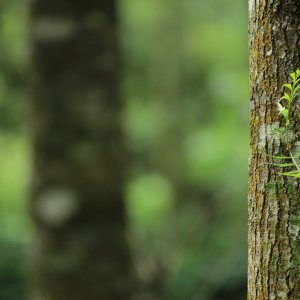


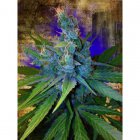








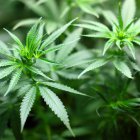
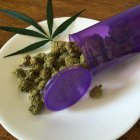
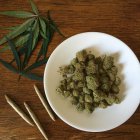


Top 3